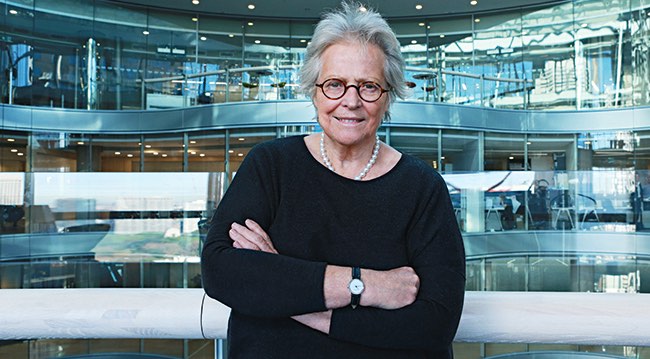The investment vehicle of tech billionaire Mike Cannon-Brookes and his family, Grok Ventures, has slammed AGL Energy for advising shareholders to vote against three of the four candidates it has put forward for positions on the gen-tailer’s board.
Galipea Partnership, an entity associated with Grok Ventures and Mike Cannon-Brookes and holding an interest of 11.28% of AGL shares, recently nominated four candidates for the gen-tailer’s board to help drive the energy giant’s uphill decarbonisation journey.
In a letter to shareholders on Friday, AGL said that while it supported the nomination by Grok of former Tesla Energy executive Mark Twidell, it recommended shareholders to vote against the other three nominees – Kerry Schott, John Pollaers and Christine Holman – at the mid-November AGM.
In the gen-tailer’s Notice to Meeting, also published on the ASX on Friday, AGL said it was not endorsing the Grok nominees because their skill set was either “already present” on the Board or “not aligned” to the priority skills being sought for the company’s current strategy.
Too many cooks?
AGL says in these documents that it is “unusual” for a non-controlling shareholder – referring to the 11.28% stake in the company that is held by Grok – to nominate four candidates for election to the Board.
“The board is also conscious of maintaining an appropriate size, commensurate to the size of the organisation, to ensure that it can operate effectively and efficiently, with a clear focus on implementing the outcomes of AGL’s review of strategic direction,” it says.
“The Board is of the view that appointing the remaining Galipea Candidates to the Board could limit its ability to bring on additional directors who possess the priority skills outlined above.”
Another poor decision
In a statement circulated on Friday afternoon, Grok Ventures said it made no sense that the Board was rejecting highly-qualified, independent directors who are committed to help make AGL a leading green gentailer.
“It’s yet another poor decision that doesn’t seem to be rooted in logical business decisions and certainly ignores the threats and opportunities facing AGL,” a company spokesperson said.
“Grok believes even with the endorsement of Mark Twidell to the Board, renewal is not complete and we disagree that the incumbent Directors have the breadth of skills required to execute on this transition. They quite simply need more help, particularly with execution which has been underwhelming to this point.”
Skills that AGL needs for transition
Grok argues Schott, the former chair of the Energy Security Board, would bring skills in energy markets and transition, regulation, large scale infrastructure and stakeholder relationships.
Holman and Pollaers between them would bring skills in business transformation, culture resets and corporate governance, Grok says.
“To be clear, as AGL’s largest shareholder, Grok is committed to working with the Board to help effect the necessary changes and make the most of the decarbonisation opportunity,” the spokesperson continued.
“Part of this commitment was to help find independent director candidates with the skills the company requires for this transition.
“Grok will be engaging directly with AGL’s 150,000 shareholders in the lead up to the AGM to explain the merits of looking to fresh faces to provide a broader mix of skills and experience – as well as additional capabilities to undertake the monumental amount of work required by the Board.”
Climate action transition plan
Shareholders at AGL’s Annual General Meeting next month will also be voting on the adoption of the proposed Climate Transition Action Plan, which includes the company’s new plan to close Loy Yang A coal power station a decade early in 2035 and to reach net zero Scope 1 and 2 emissions following the closure of its coal fleet.
The announcement of the accelerated coal exit, just last week, was the result of a major strategic review, and AGL claims it brings the company into line with the Paris Agreement goals.
In place of the outgoing coal, AGL plans to spend $20 billion to have up to 12GW of new renewables and firming capacity in place before 2036 – funded via assets, offtakes and partnerships.
“The strategic review was a step in the right direction – but it was not ambitious enough in providing for a plan that delivers below 1.5 degrees,” the Grok spokesperson said on Friday.
“The strategy also emphasises a centralised operating model (i.e. replacing coal with utility scale solar and batteries) and fails to lean into the behind the meter opportunity.”
Cannon-Brookes vs AGL
It’s been a roller-coaster ride of a past year for AGL shareholders after the country’s biggest coal generator, and biggest polluter, was forced to abandon its ill-considered plans to split in two and keep burning coal for another two decades and more. And forced to do so by shareholder activism.
As RenewEconomy has reported, Cannon-Brookes achieved this by spending $650 million of his own money – through Grok Ventures – to become the single biggest shareholder in AGL, while also winning the support of major institutional investors like superannuation fund Hesta to build a blocking stake.
Once the demerger was scuppered, the attention of Grok and Cannon-Brookes then turned to the company’s top ranks, and the push for a long overdue renewal of the board to suit the company’s new green agenda.
By September, AGL had announced the appointment of existing board member Patricia McKenzie as the company’s new chair, to replace outgoing chair Peter Botten, who resigned in the May following the failed demerger alongside CEO Graeme Hunt.
AGL CFO Damien Nicks has stepped in as interim CEO, with Gary Brown stepping up to the role of interim CFO.







